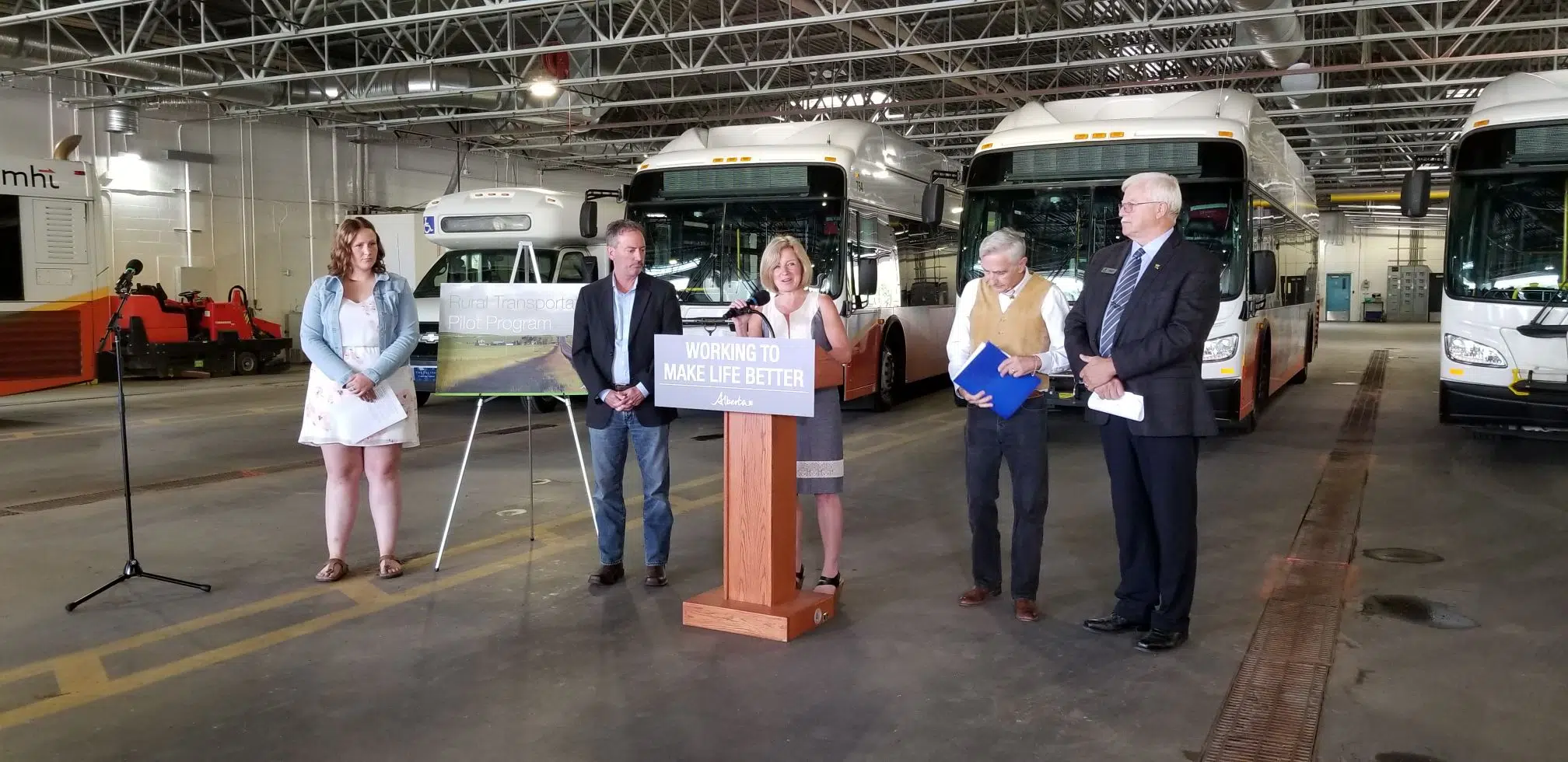
Premier announces rural transit shuttle program for southern Alberta
MEDICINE HAT, AB — A new pilot project in southern Alberta will connect people in communities to new transit options.
Premier Rachel Notley announced in Medicine Hat Wednesday morning a new rural shuttle program will be running between Highway 3 between Medicine Hat and Lethbridge. The program, part of the Rural Transportation Pilot Project, will provide public transportation to more than 27,700 people in the region, according to a news release.
The total investment from the province is $700,000.
